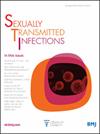Preferences for sexual health services among middle-aged and older adults in the UK: a discrete choice experiment
IF 3.6
3区 医学
Q2 INFECTIOUS DISEASES
引用次数: 0
Abstract
Objectives Sexual health is an integral part of well-being. However, the sexual health needs and desires of middle-aged and older adults have been largely disregarded. Therefore, this study aimed to understand the sexual health service preferences of adults aged 45 and older to improve the accessibility of sexual health services in the UK. Methods The formative stage of the discrete choice experiment (DCE) followed three steps: concept elicitation, refining and implementation. The attributes and levels were determined through 22 semistructured interviews during the concept elicitation, followed by pilot testing for refining the survey. Qualtrics XM, with conjoint project features, was implemented as the DCE survey platform. We used a random parameter logit model to estimate the relative importance (RI) of each attribute and preference for each attribute level. We also used a latent class model to explore groups of participants with similar preferences. Results In total, 200 responses were included for analysis. The demographic breakdown included 62.5% females, 35.5% people with disabilities and 26.0% identifying as a sexual minority. The median age was 53. Preferences for using sexual health services were mainly influenced by the mode of delivery (RI 32%), location (RI 18%) and cost (RI 16%). Participants showed a preference for face-to-face interactions at sexual health clinics and displayed a willingness to pay for private services. Extra support and the consultation style played minor roles in their decision-making process. No differences in preferences were identified among disabled people. However, sexual minorities expressed their preferences for conventional messaging. Conclusions Our study revealed that middle-aged and older individuals prioritise sexual health services offering face-to-face consultations, emphasising a preference to attend sexual health clinics over cost. Aligning service delivery with these preferences has the potential to significantly improve the accessibility and uptake of sexual health services for adults aged 45 and older in the UK. No data are available. Data for this paper are not publicly available.英国中老年人对性健康服务的偏好:离散选择实验
目标 性健康是幸福生活不可或缺的一部分。然而,中老年人的性健康需求和愿望在很大程度上被忽视了。因此,本研究旨在了解 45 岁及以上成年人对性健康服务的偏好,以改善英国性健康服务的可及性。方法 离散选择实验(DCE)的形成阶段分为三个步骤:概念激发、完善和实施。在概念激发过程中,通过 22 个半结构式访谈确定了属性和水平,随后进行了试点测试,以完善调查。Qualtrics XM 具有联合项目功能,被用作 DCE 调查平台。我们使用随机参数 logit 模型来估算每个属性的相对重要性 (RI) 和每个属性等级的偏好度。我们还使用了潜类模型来探索具有相似偏好的参与者群体。结果 共有 200 份回复被纳入分析。按人口统计学分类,女性占 62.5%,残疾人占 35.5%,性少数群体占 26.0%。年龄中位数为 53 岁。使用性健康服务的偏好主要受服务方式(相关指数为 32%)、地点(相关指数为 18%)和费用(相关指数为 16%)的影响。参与者表示更喜欢在性健康诊所进行面对面的交流,并愿意为私人服务付费。额外支持和咨询方式在他们的决策过程中作用不大。残疾人的偏好没有差异。不过,性少数群体表示他们更喜欢传统的信息传递方式。结论 我们的研究表明,中老年人优先选择提供面对面咨询的性健康服务,强调他们更愿意去性健康诊所,而不是去花钱的诊所。根据这些偏好提供服务有可能显著改善英国 45 岁及以上成年人的性健康服务的可及性和使用率。暂无数据。本文数据未公开。
本文章由计算机程序翻译,如有差异,请以英文原文为准。
求助全文
约1分钟内获得全文
求助全文
来源期刊

Sexually Transmitted Infections
医学-传染病学
CiteScore
5.70
自引率
8.30%
发文量
96
审稿时长
4-8 weeks
期刊介绍:
Sexually Transmitted Infections is the world’s longest running international journal on sexual health. It aims to keep practitioners, trainees and researchers up to date in the prevention, diagnosis and treatment of all STIs and HIV. The journal publishes original research, descriptive epidemiology, evidence-based reviews and comment on the clinical, public health, sociological and laboratory aspects of sexual health from around the world. We also publish educational articles, letters and other material of interest to readers, along with podcasts and other online material. STI provides a high quality editorial service from submission to publication.
 求助内容:
求助内容: 应助结果提醒方式:
应助结果提醒方式:


